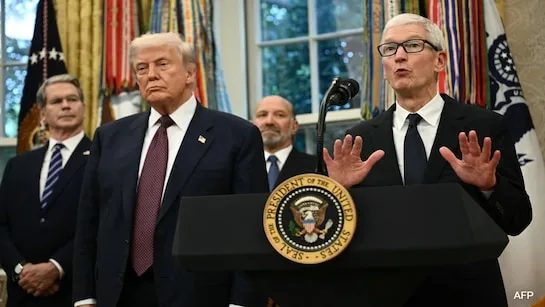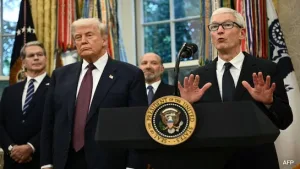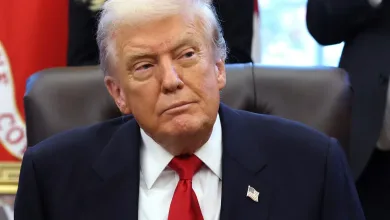
Apple Commits Extra $100 Billion to U.S. Manufacturing
Apple CEO Tim Cook joined former President Donald Trump at the White House this week to announce a major increase: Apple is increasing its investment in U.S. manufacturing by an additional $100 billion over the next four years. This pushes the company’s total domestic commitment from $500 billion to $600 billion, marking a significant move to strengthen its footprint on American soil.
Trump, standing beside Cook during the announcement, praised the decision, calling it a big step toward bringing production closer to home. However, the investment doesn’t mean full iPhone assembly will shift to the U.S. Instead, the funds will go into expanding Apple’s supply chain and boosting high-end manufacturing capabilities under its American Manufacturing Program.
As part of the initiative, Apple plans to deepen its partnerships with ten U.S.-based firms, including Corning, Texas Instruments, Coherent, Applied Materials, and Broadcom. These companies are responsible for key parts like chips and other vital components used in Apple products globally. Cook also acknowledged Trump’s support in helping move the project forward.
The announcement comes after months of criticism from Trump, who had openly opposed Apple’s efforts to shift iPhone production to India—something he saw as a workaround to dodge tariffs on Chinese imports. During a trip to Qatar earlier this year, Trump said he told Cook directly, “I don’t want you building in India.” That same sentiment was reflected in a recent executive order where Trump added a 25% tariff on goods coming from India, citing the country’s ongoing oil trade with Russia. With that, tariffs on Indian products rose to as high as 50%.
Shortly before the White House event, Apple also signed a $500 million deal with MP Materials the only rare-earth material producer in the U.S. to expand a Texas-based facility. The plant will focus on using recycled materials to manufacture magnets for iPhone vibration systems, which play a key role in the devices’ haptic features.
During Apple’s most recent investor call, Cook stressed that several iPhone components, including the glass display and facial recognition hardware, are already made in the U.S. He noted that Apple is currently producing nearly 19 billion chips domestically and is working to increase that number as part of the new investment.
Following the news, Apple’s stock rose by 5% during midday trading a sign that investors are hopeful the move will help rebuild trust with the Trump administration. Still, despite the short-term bump, Apple’s stock is down 15% for the year, largely due to uncertainty surrounding its delayed push into the artificial intelligence space.







